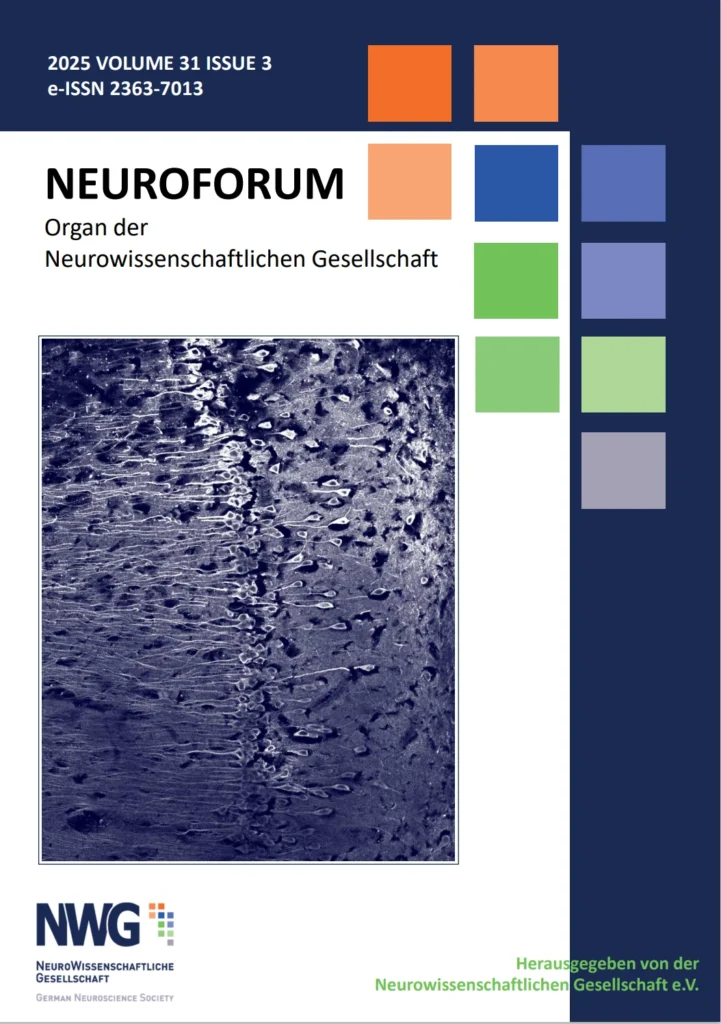An exciting article on the topic of “Neuronal autophagy – more than just degradation” by our CRC1436 PI Maria Andres-Alonso from sub project A04 „Cognitive enhancement by the anti-aging protein Klotho – From molecular mechanisms to interventions“ and Catrin Schweizer can currently be found in Neuroforum, the magazine of the German Neuroscience Society (Neurowissenschaftliche Gesellschaft e.V.).

Abstract: Autophagy is a major cellular degradative pathway that plays a key role in maintaining proteostasis and ensuring cellular health. Given the long-lived nature of neurons, mechanisms that ensure timely removal of damaged proteins and organelles are essential to preserve neuronal health. In this context, current evidence suggests that autophagy in neurons has adopted distinct features that serve the needs imposed by a very complex cellular morphology and to overcome the challenges imposed by neurotransmission.
Autophagy is a constitutive process in neurons, where autophagosome formation takes place most prominently at distal axons and this process is tightly linked to the turnover of axonal endoplasmic reticulum. In addition, recent studies indicate that different modes of autophagy exist in neurons and that synaptic activity can induce autophagy at presynaptic terminals. This process is tightly linked to the synaptic vesicle cycle and it likely requires the recruitment of autophagy machinery to presynapses for the formation of autophagosomes. Beyond its degradative role, autophagy in neurons also fulfills non-canonical functions: hybrid organelles from the autophagy pathway called amphisomes do not only mediate degradation but they are also endowed with signaling capacities by the incorporation of signaling receptors. Thereby autophagy also contributes to regulate synaptic and neuronal function.